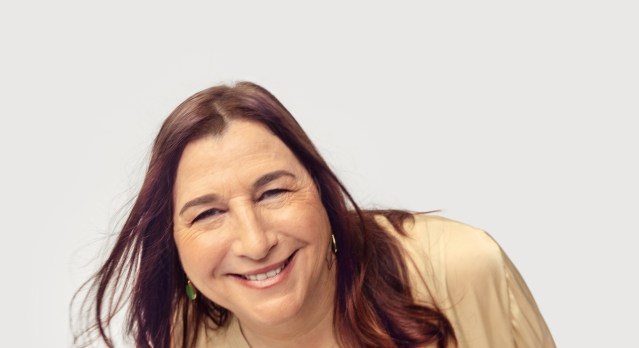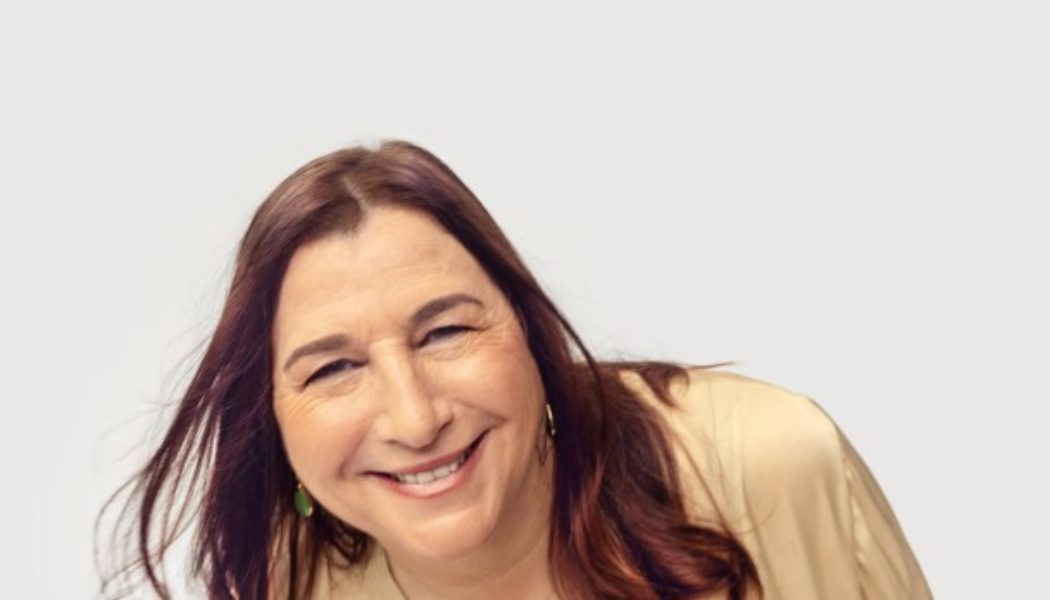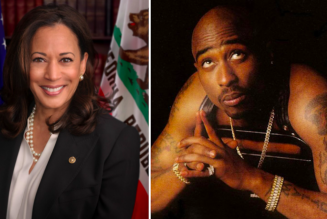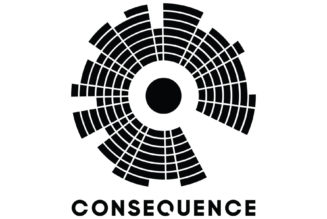Mondays with Morgan is a column in LondonJazz News written by Morgan Enos, a music journalist based in Hackensack, New Jersey. Therein, he dives deep into the jazz that moves him – his main focus being the scene in nearby New York City.
This week, Enos spoke with Jana Herzen – the founder of the revered jazz and global music label Motéma Music, who provided a launchpad for jazz greats from Joey Alexander to Gregory Porter and are celebrating their 20th anniversary this year.
Links to Motéma’s website – as well as a compilation spanning two decades of the label – can be found at the bottom of this article.

When interviewing a musician and label owner like Jana Herzen, the question naturally arises: how does one square those two roles? That question might be a bit pat; after all, numberless artists have released other artists’ work. Nonetheless, Herzen offers a surprising answer.
“My formative years were all in theatre, and I look at music in a theatrical way,” Herzen explains to LondonJazz. “That’s the most important thing to me – that people are moved, and that a story is being told.”
Not yet a subscriber of our Wednesday Breakfast Headlines?
Join the mailing list for a weekly roundup of Jazz News.
And across Motéma’s two-decade history – which both helped send the aforementioned Alexander and Porter into the stratosphere, and provided platforms for visionaries from Geri Allen to David Murray to Charnett Moffett – they’ve lived up to that edict.
And it extends beyond theatre, to mere logistics. “I appreciate on every level how much effort has to be made to make the music,” Herzen says. “I have always said, from day one, that the musician makes the noise, and the job of the label is simply to amplify it.”
Read on for an interview with Herzen about the genesis of Motéma Music, its progression to the current day, and everything in between.
LJN: How would you describe the music industry ecosystem 20 years ago, and Motéma’s role within it?
Jana Herzen: I was not somebody who aspired to start a record label. [As far as] my early professional life – from when I was, like, 15 until I was 30 – I ate, breathed, and slept theatre. I helped to start a theatre company, which is now MCC Theater. They’re one of the most respected companies for releasing new plays in New York. It’s led by one of the top casting directors in the city, who I had gone to school with, so I had some experience with starting an arts company.
I made an album, and I wanted to get it out. I tried to get a deal, and I got a couple of nice comments from people, but they were saying, “The industry’s in trouble; we’re not signing this right now.” I wound up realising I would need to put it out on my own.
But I always like to find a guide for the jungle, if I’m going into it. So, I wound up reaching out to some people. Susie Reynolds, who produced our first record, introduced me to a lot of people on the scene, including David Neidhart, who had worked at GRP and Verve.
He was telling me how so many people were being let go from the music industry; because the digital revolution completely decimated the music industry at that time. So, when I was going into it, a lot of people were going out.
LJN: So how did you break through?
JH: I went to Midem – a big trade show for record labels – with our first two releases, which were by [percussionist] Babatunde Lea and [pianist and composer] Lynne Arriale.
Just by luck, or fate, we wound up getting an opportunity to showcase our artists at the one jazz showcase there. Midem is really not about jazz; it’s about the music industry in general.
I met people there, and one of the fellows who had been involved with a jazz label heard that I was starting a new label. He said, “Don’t you realise that this industry is going into the toilet?” I said, “Well, maybe people just aren’t looking at it the right way. Maybe they need to have a fresh approach.”
I knew nothing about it. And that was both my weakness and my strength, because I was fresh in looking at what it was – I approached it much more like a not-for-profit music company.
It was a time of turmoil when I first stepped into it. Then, streaming came along, and that changed things again. Now, the larger labels are making a lot of money from streaming and maybe not sharing quite as much as they should with writers and players. That’s something that’s being addressed and advocated for.

LJN: Can you speak to how the aesthetic of the label coalesced in the ensuing years?
JH: I think it’s just an outgrowth of my taste. I sign things that I love, and I’ve always had a fascination for things that are at the border of things.
That’s been our aesthetic: jazz without borders. Whether it’s jazz that’s mixing with world music, or inspired by a specific country.
Right now, we’ve got [pianist and composer] Shuteen [Erdenebaatar]. Although she doesn’t have that much Mongolian influence, she’s still Mongolian; she’s bringing her aesthetic from her country into it.
And we have [the trio] FlamenKora, which is a mix of choral music from Senegal, a German jazz trumpeter who has a lot of experience with African music, and a flamenco guitarist.
You have people who are really masters of their craft doing it, and that’s always been important – that people have high artistry.
LJN: Within the realm of “high artistry,” what specifically speaks to you?
JK: I really fell in love with polyrhythms and African music. That’s an underpinning that you will find in Motéma – that almost everything has this subtle polyrhythmic groove. Somebody’s in there, doing that somehow or other. I started really understanding the call and response of African drums – the intricate communication that’s going on.
LJN: How would you describe the label’s recent years?
JH: Basically, I had an office, and I had this staff, and the writing was on the wall. I couldn’t afford it. I had to let staff go, and then Covid hit, and I was like, OK, I’m letting this office go. Because what was I going to do with an office?
I was already in California when Covid hit, so I would call this the “return to San Francisco” period of the label. I’m operating it out of San Francisco, [out of] the single-family house that I’ve lived in, whenever I would come back here.
I got married [to Charnett Moffett] in 2019, like a month before the pandemic hit and the lockdown happened. He and I had been playing music for like 10 years before that; he was a good friend for many, many years.
As we started living together and being locked down together, we were just making music, and I was running the label. We had some nice releases in [large ensemble leader and composer] Jihye Lee – we put out [2021’s] Daring Mind during that period – and the Royal Bopsters, and some different things that I had commitments to.
But truth be told, we’d decided to wind things down at the label for a while, and focus on our duo.
When he suddenly died, we had started that plan. I didn’t really have any commitments to other artists – just a few artists on the label who had things coming out. But at that point, with losing him, of course, that plan went out the window.
I spent about eight months recovering, and doing a lot of cleanup of the label’s infrastructure. And other things that I had [on my plate] – family and whatever.
LJN: And now we’ve reached the label’s 20th anniversary.
JH: Around November. I wanted to put out the music that Charnett and I had made, for sure. And some other people – [Flamenkora trumpeter] Volker [Goetze], and [pianist/composer] Shuteen [Erdenebaatar] showed up.
I went, Oh my goodness, she’s so wonderful. I would love to debut her on our 20th anniversary year.
There are some interesting things in the pipeline. Nothing ready to communicate to the press yet. It’s a lot of work running a label, and now I’m down to a very small staff, so it’s really on me to do a lot of it, and I just can’t do it unless it’s done to a certain level.
It’s particularly special [to witness] what the artists have now become. I ‘ve been thrilled to see [alto saxophonist and composer] Lakecia [Benjamin]’s rise. Because even though she hasn’t been on the label since I first released her debut [2012’s Retox], she’s someone I’ve always believed in.
[Drummer and composer] Terri Lyne [Carrington] is doing so amazing. Like a lot of artists who’ve been through Motéma and are maybe releasing somewhere else, she’s having quite a moment right now.
My favourite thing is to find someone who’s just amazing, and help introduce them to the world – [pianist and composer] Joey Alexander, [singer/songwriter] Gregory [Porter], [saxophonist and composer] Melissa Aldana… they’re beautiful people.
LINKS: Motéma Music’s website









